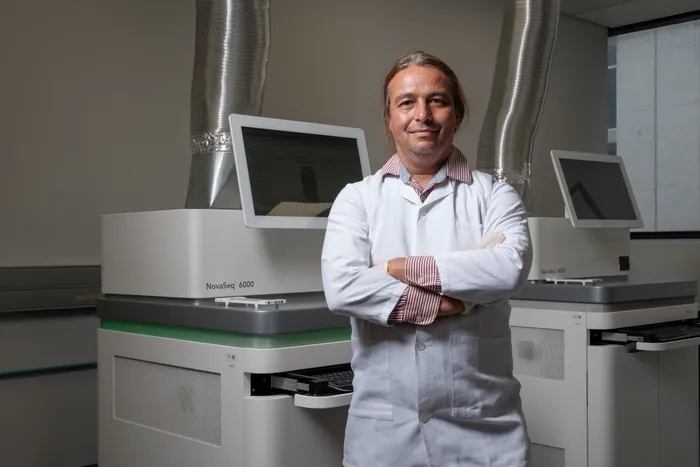SA scientist welcomes good news for Africa

South African scientist Professor Tulio de Oliveira has hailed his global accolade by TIME magazine as a boon for high-level science on the continent.
Durban — South African scientist Professor Tulio de Oliveira has hailed his global accolade by TIME magazine as a boon for high-level science on the continent.
This week the publication announced that De Oliveira was on its 2024 TIME100 Health list, a new annual compilation that celebrates 100 individuals who have had the most impact on global health this year.
“This kind of recognition is not only to me, but in general, it’s for Africa and South African science. A lot of times South Africa, Africa, is only recognised for bad or tragic events around the world, and it’s good for a change to be recognised for high level science,” he said.
The inclusion of De Oliveira, who is globally recognised for his work in the field of genomics, was determined by TIME’s international network of editors and thought leaders.
It’s the second time he’s appeared in one of TIME’s influential rankings after his previous inclusion in the 2022 TIME100 list of the world’s most influential people.
During the Covid-19 pandemic he became a household name because of his research. In 2020 he led the team that discovered the SARS-CoV-2 Beta variant. A year later De Oliveira led a groundbreaking multidisciplinary team of researchers and scientists in the discovery of the Omicron variant of SARS-CoV-2, which swiftly emerged as the dominant global variant of the virus.
On Friday he told the Independent on Saturday that the recognition was also for the current work he and his team were doing which involved setting up large and efficient genomic surveillance systems for new diseases, such as the ones amplified by climate change.
“It’s a big programme we started in the last year as we pivoted from Covid to other epidemics, the ones that we work the most, the ones amplified by climate change. The recognition also mentioned the very large and very passionate work we did on capacity building in Africa, and how many of the heads of laboratories and groups in the continent now were fellows or students of ours.”
De Oliveira said it was also an indication that their long-term capacity building was being recognised.
“Because that’s our dream, that we have enough high-calibre scientists in Africa that can respond to epidemics as they happen.”
He said about two years ago, when the Covid-19 pandemic eased, it was decided to use their expertise and collaborative network of hundreds of scientists to create a new programme.
“We identified that one of the biggest threats to the emergence of new epidemics and diseases is climate change. So we formed a global consortium called the Climate Consortium. It involves 30 or 40 global countries that try to see the interaction between climate change and infectious disease.”
De Oliveira said they had already responded to multiple outbreaks such as cholera in Malawi, as well as Mozambique and Cameroon that occurred after floods and extreme climate events. There have also been huge outbreaks of dengue in Burkina Faso, Senegal, and Ethiopia, he said.
“That’s also again associated with increase of temperature and spread of vectors of mosquitoes. Our climate team has even responded to the large outbreak of dengue in Italy last year, and we continue tracking multiple pathogens.
“What we are doing is to use a lot of the resources to then track and quickly control a lot of other outbreaks which unfortunately (because of ) climate change is amplified. It is estimated that it’s amplified 60% of non-pathogens and with extreme climate events we may have the rise of other ones.”
De Oliveira said Durban was still struggling with high levels of E. coli in the sea and rivers more than a year after it was lashed by devastating floods.
“Unfortunately climate change will amplify epidemics and pathogens and that’s why (it will) create such a problem,” he said.
He said the answer was to decrease the level of carbon dioxide released in pollution which is why he preferred to cycle rather than drive. He said energy systems must be replaced with non-polluted energy systems and food systems and the way people live must be adapted to adjust to the changes taking place.
“And for us, it is very important that these new outbreaks are detected and controlled quickly, so outbreaks don’t become epidemics.”
De Oliveira is the director of the Centre for Epidemic Response and Innovation at Stellenbosch University, director of the KwaZulu-Natal Research Innovation and Sequencing Platform at the University of KwaZulu-Natal, and deputy director of the Genomic Surveillance Unit at the Wellcome Sanger Institute in the UK.
Independent on Saturday